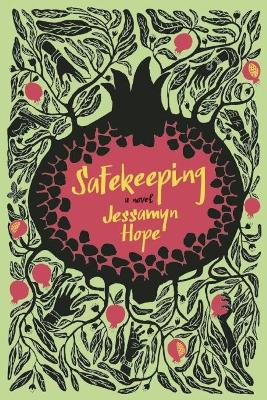Reviewed by clementine on
That said, clearly from my rating there was more that I didn't enjoy. Let me start with the premise: someone who has done wrong setting off on a journey to return a priceless object to its supposed rightful owner in order to find some sort of penance. I just find the premise a little overdone and banal, though it is subverted somewhat. I wasn't a huge fan of the framing of the narrative and flashbacks, either: characters were just constantly lapsing into detailed reveries. This integrates the flashbacks into the text, but I found it more jarring to constantly move between past and present than if the flashbacks had been a little more separated. As usual with multi-character narratives, some were a lot more interesting than others. I didn't particularly like how the perspective could change from paragraph to paragraph, either. It felt messy.
In general I object to the politics of this novel. I mean, where do I even start? First, Adam's addiction isn't explored in any depth and is basically used to bolster the idea that he's a bad person. (I mean, I guess he's supposed to be kind of sympathetic, but he's also a misogynist and generally just terrible.) The treatment of Claudette's OCD didn't ring true, either: she managed to just break free of it even after going off her medication because she had some sort of spiritual revelation. Ulya is a really horrible character, and I don't just mean because she's a bad person. Yes, she is mean, selfish, greedy, and a criminal - and I find the fact that she's also overtly sexual a lazy misogynistic stereotype clearly tying lack of morals with female sexuality. (Oh, and punishing her with a pregnancy is just icing on the cake.) Ziva's socialism and feminism are written as aggressive and militant: because she believes in progressive values, she isolates herself... even though she's kind of right. And the position on Israel is just... not something I can get behind. This is a fraught topic, but the positioning of anyone who questions Israel as inherently anti-Semitic and refusal to consider the Palestinian perspective is just really off. A lot of characters espouse racist viewpoints against Palestinians which the narrative doesn't challenge at all.
Basically, I had a lot of technical and political issues with this novel, which is too bad, because the blurb made it sound like it had a lot of potential.
Reading updates
- Started reading
- 2 September, 2019: Finished reading
- 2 September, 2019: Reviewed
